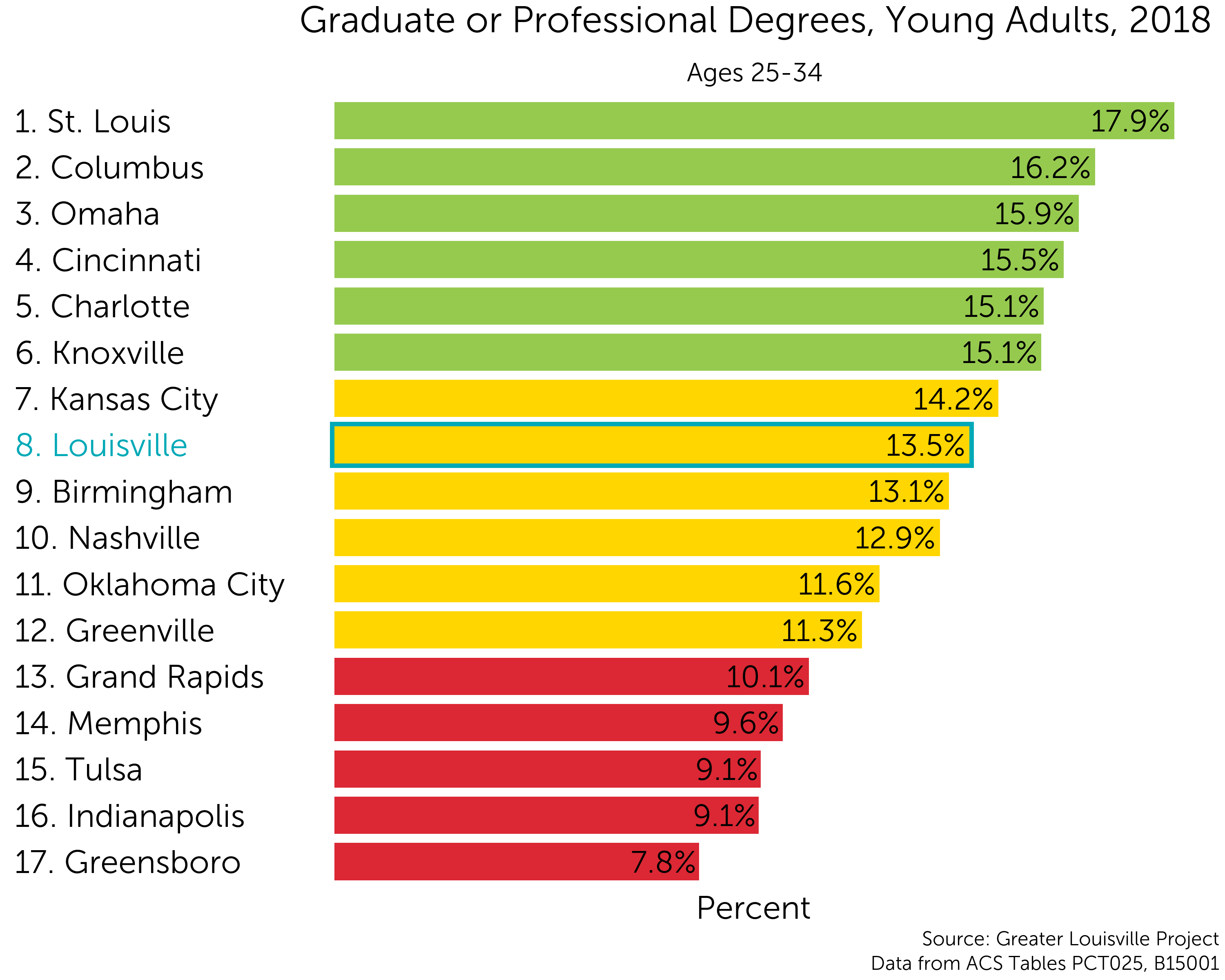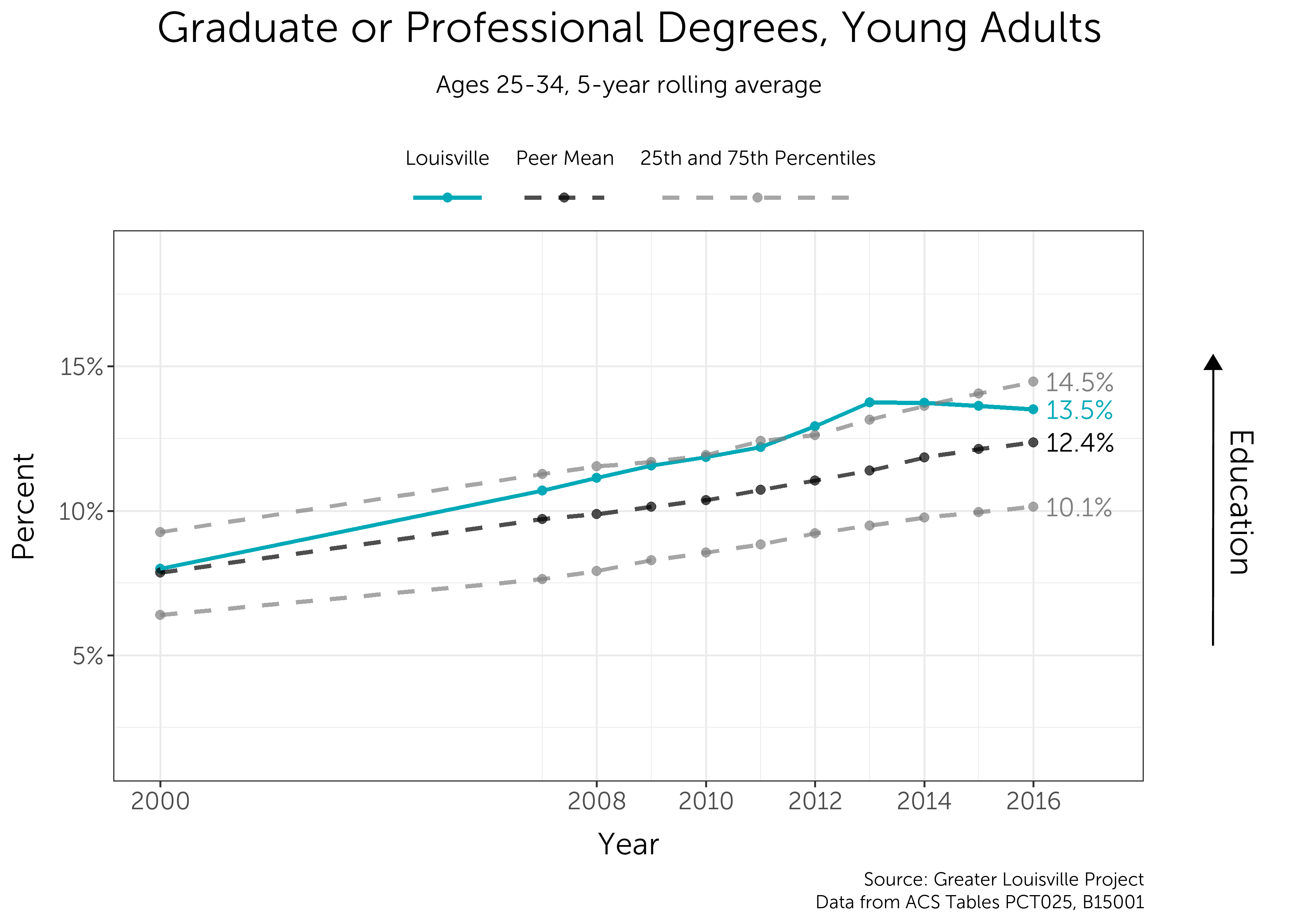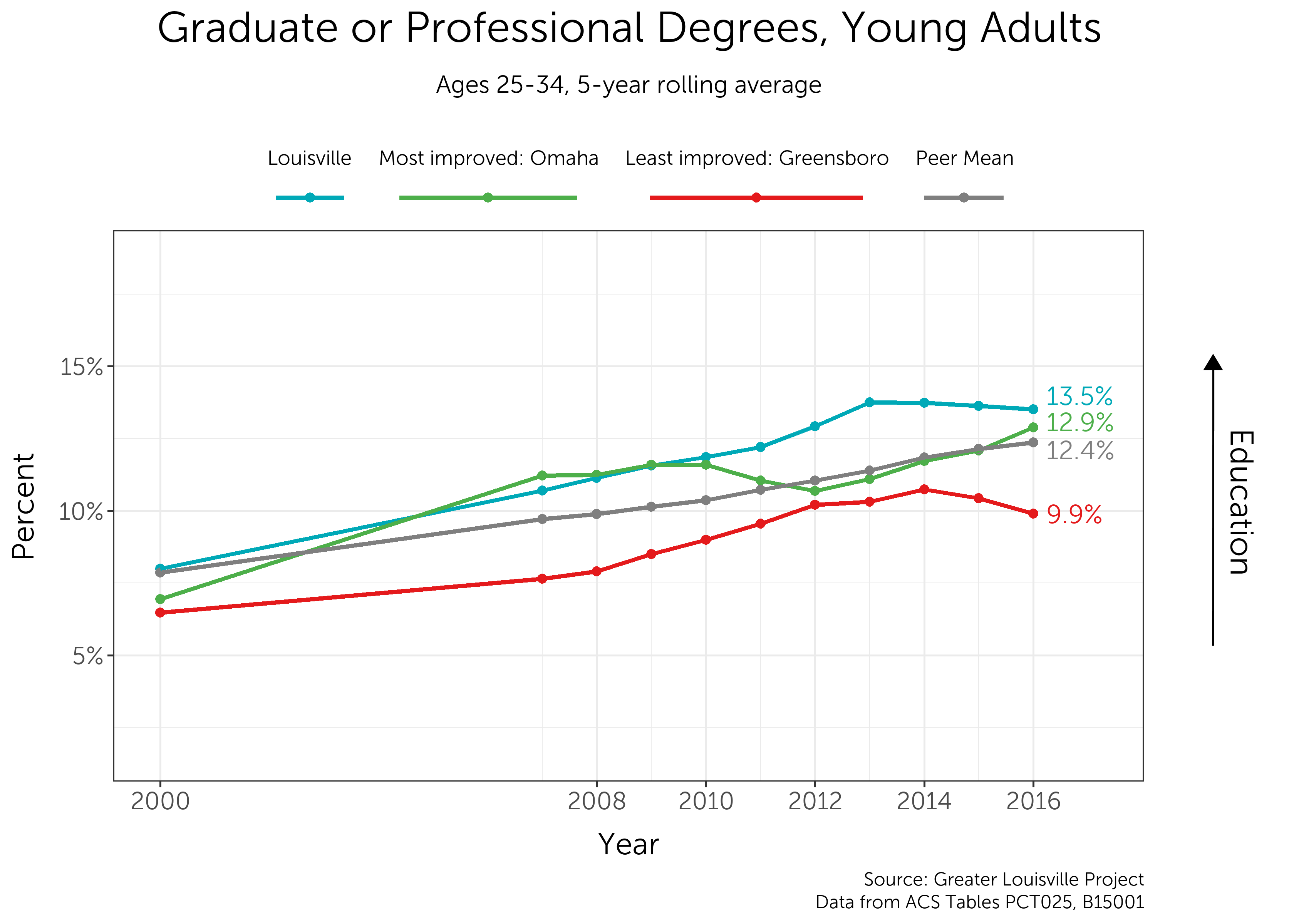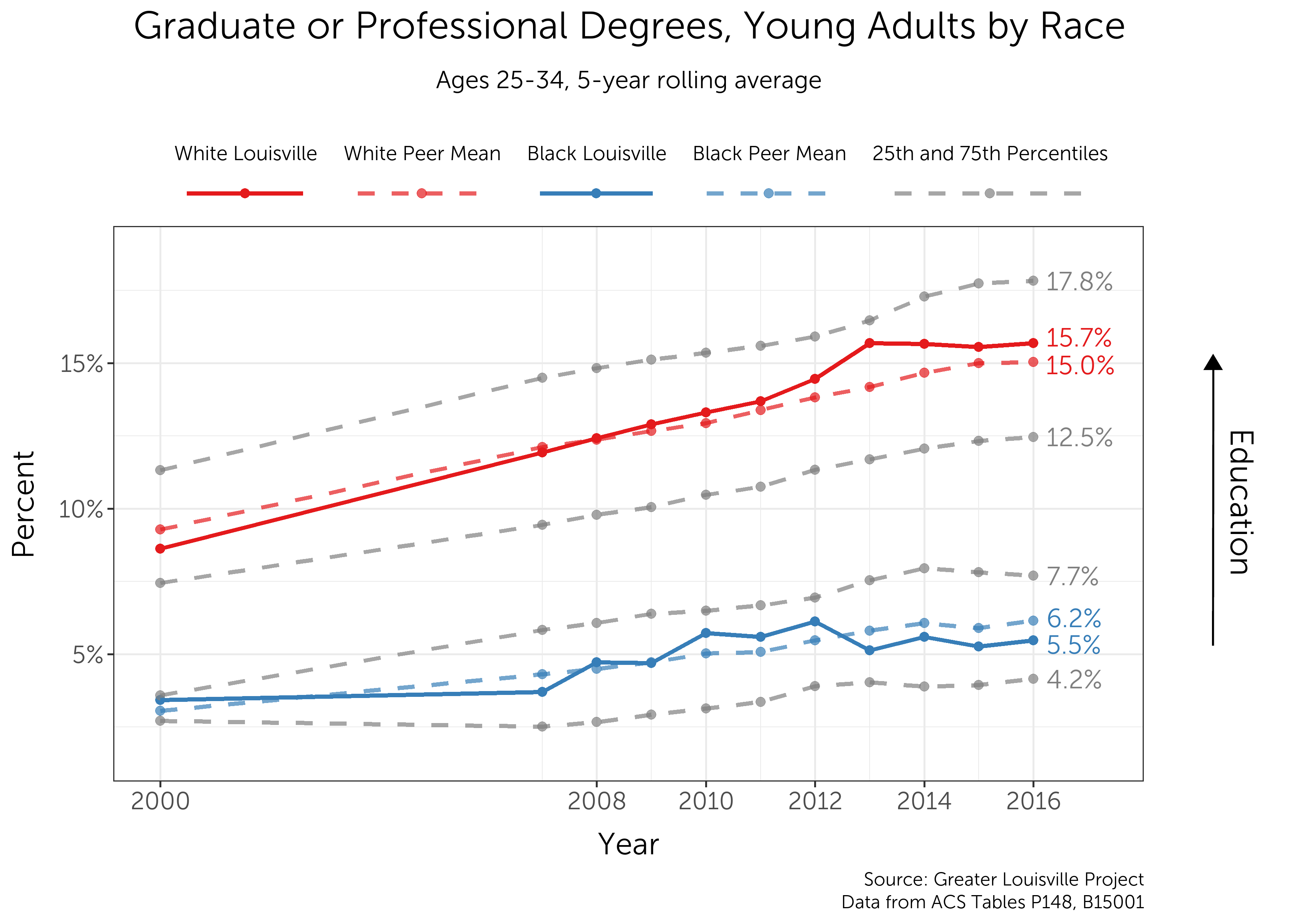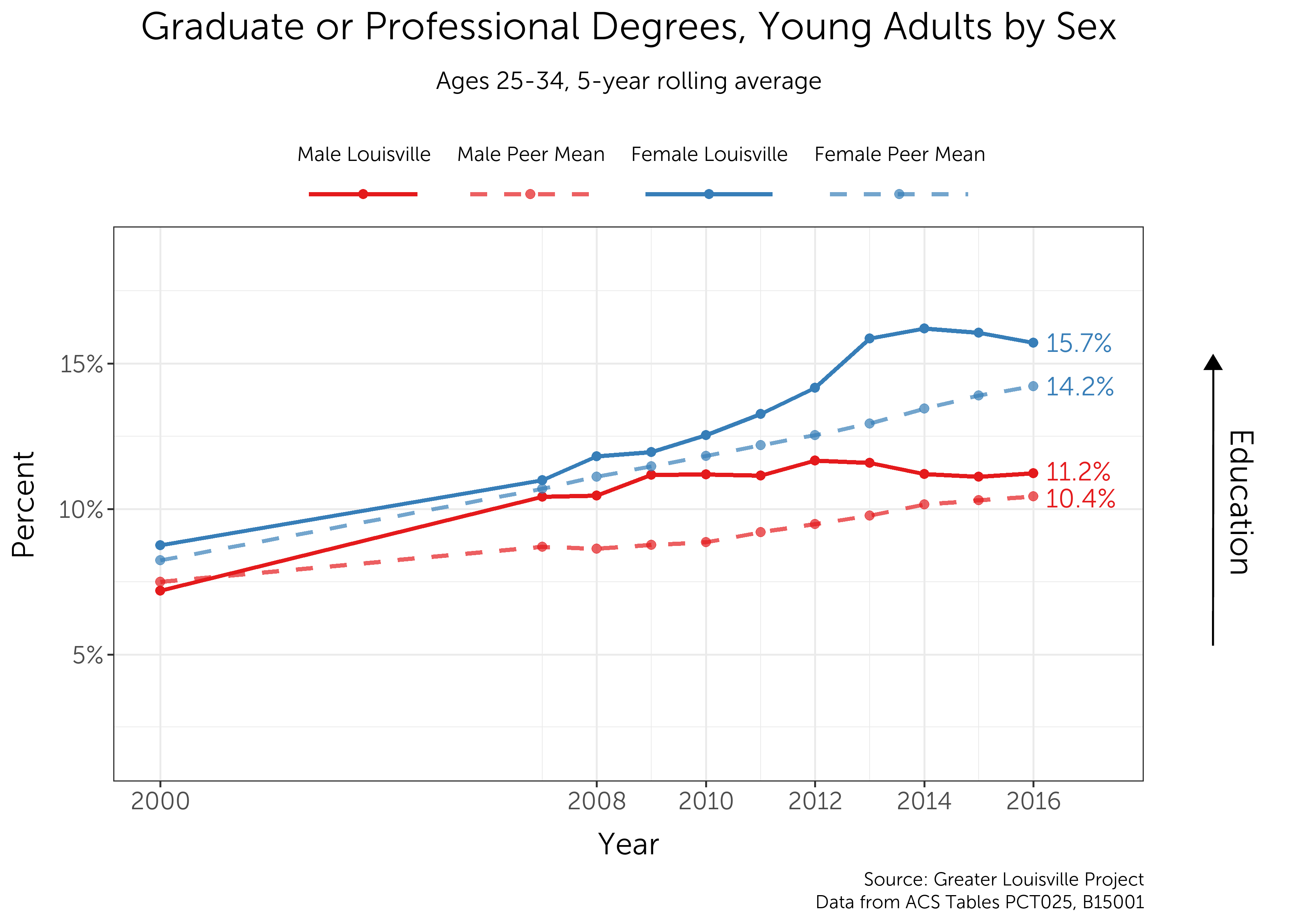Where are graduate and professional degree holders concentrated in Louisville?
While thirteen percent of young adults hold graduate or professional degrees in Louisville, the prevalence of degrees varies substantially across the city. In the map to the left, areas where more young adults have post-baccalaureate degrees are purple, while areas where fewer young adults hold post-baccalaureate degrees are blue and white. Similar to other maps of post-secondary degrees, there is a distinct divide between western and eastern Louisville.
Post-baccalaureate educational achievement is most concentrated the Highlands where over 31% of the young adult population have a graduate or professional degree. Conversely, the lowest concentration of earned post-baccalaureate degrees can be seen in the Portland neighborhood, where approximately 0% of young adults have earned a bachelor’s degree or higher.
Scroll over the map to see values for each census tract. Zoom in to see street names that form that boundaries of each tract.

